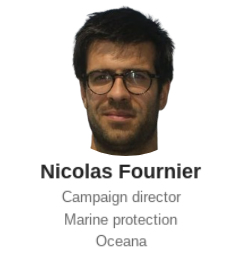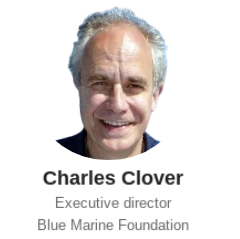Environmentalists are celebrating a Greek ban on bottom trawling and urging other nations to follow. Some scientists fear unintended consequences.
Bottom trawling has long attracted controversy over its environmental impact. As long ago as the 1880s, complaints from line fishers in the UK resulted in
an inquiry into claims it reduced fish stocks and damaged habitat.
The fishing method involves boats dragging weighted cone-shaped nets across the seabed to capture fish and other species such as shrimp that live on or close to it. These nets can be huge, up to 240 metres wide, according to campaigners.
Concerns about the environmental impact of fishing largely revolve around overfishing, damage to habitats, and accidental ‘bycatch’ of non-target species including seabirds and mammals. Bottom trawling is the only method of fishing conclusively linked to all three problems, according to a 2021 report from organisations including the Blue Ventures conservation group and Fauna and Flora International, which oppose the practice in protected areas.
Greek ban energises opponents
Bottom trawling is globally mainstream, responsible for a quarter of all wild-caught seafood. Many campaign organisations celebrated when Greek prime minister Kyriakos Mitsotakis announced this month at the Our Ocean conference in Athens that the practice would be banned in the country’s national marine parks by 2026 and across all its protected ocean areas by 2030.
 “We didn’t expect it from Greece – this shows that they have leadership on marine issues, taking the space of countries like France, Germany or Spain that would normally be more progressive on these issues, but are failing,” says Nicolas Fournier, campaign director for marine protection at the Oceana NGO. “Greece has a very large trawling fleet, so this is a tangible commitment for them, not low-hanging fruit.”
“We didn’t expect it from Greece – this shows that they have leadership on marine issues, taking the space of countries like France, Germany or Spain that would normally be more progressive on these issues, but are failing,” says Nicolas Fournier, campaign director for marine protection at the Oceana NGO. “Greece has a very large trawling fleet, so this is a tangible commitment for them, not low-hanging fruit.”
According to the Greek government, there are 247 trawling boats in Greece. Affected communities will be financially compensated, with payments from offshore wind farms flagged as a potential source. So far, the government has not released many details of the ban, which will eventually cover 32% of its waters. This is leaving fishers in the dark as to the exact impact on their livelihoods, Stefanos Kalogirou, a fisheries researcher at the Agricultural University of Athens says.
Protected areas a flashpoint for debate
The Greek announcement has added fuel to the fire of debate in Europe. The European Commission – the European Union’s main executive body – wants bottom trawling in protected areas phased out under its 2023 marine action plan, in line with existing EU legislation that says protected areas should not be subjected to bottom-towed fishing gear.
So far, Greece is the only EU member state that has announced a ban.
The Our Ocean conference in Athens (Image: ΝΕΑ ΔΗΜΟΚΡΑΤΙΑ, CC BY-NC)
Oceana is campaigning for the commission to take tougher action on countries that still allow bottom trawling in protected areas. In April, along with other anti-trawling NGOs, it published research showing that the practice is currently allowed in 90% of offshore EU marine protected areas (MPAs). The majority of EU countries have missed a 31 March 2024 deadline to set out national roadmaps for phase outs.
The debate has become hugely politicised. France has launched a dispute with the UK at EU level after the British government’s move in March to ban bottom trawling in 13 of its protected areas covering around 4,000 square kilometres. French trawlers have operated in these areas in the past and the French government complains that the move breaches an agreement on trade and cooperation the UK made when it left the EU.
 Charles Clover, executive director of the Blue Marine Foundation, argues the ban applies to both UK and French vessels, meaning that [the ban] is allowed under the agreement
Charles Clover, executive director of the Blue Marine Foundation, argues the ban applies to both UK and French vessels, meaning that [the ban] is allowed under the agreement.
“It’s a huge mess in Europe because they haven’t been obeying their own law for 40 years. It’s all become totally chaotic and quite nasty,” he says.
The European Bottom Fishing Alliance has strongly condemned the idea of banning its members’ 7,000 vessels from MPAs en masse, arguing that any bans should be done case-by-case and based on the best available science, not through what it calls “a parody of political debate driven by NGOs and activists”.
It claims that the sector has become more sustainable by using technologies to reduce bycatch and fuel consumption. It says it has helped to identify the most vulnerable areas that need to be closed, while finding those where it should still be allowed to operate. A blanket ban in European MPAs would weaken the EU’s food security, and result in greater imports from areas of the world where it has no control over sustainability, it warns. [continues....]



